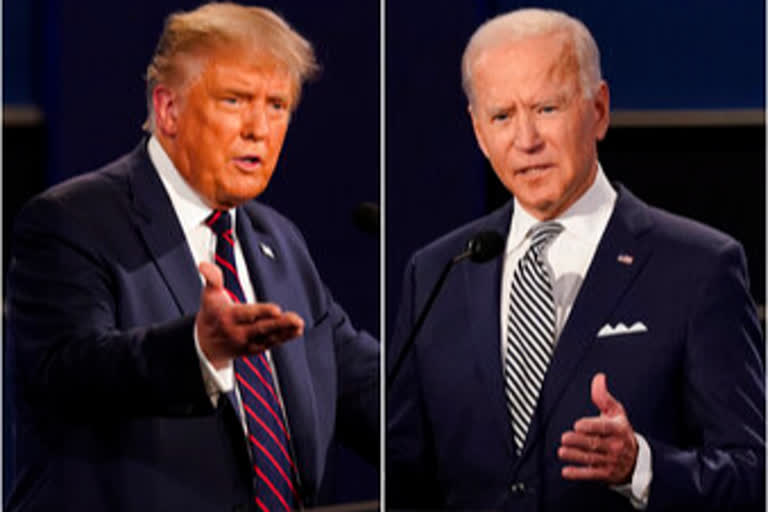Washington: In a presidential election year that has thrown the country's divisions into stark relief, Americans can agree that misinformation about government and politics is a major problem.
“The misinformation, it's just blossomed to the point where it's unmanageable," said nurse Liana Price (34) of Tampa Bay, Florida, who supports Democrat Joe Biden in the contest against President Donald Trump and worries misinformation about the election could sway voters. “You try to explain and provide facts and actual research, but people don't believe it.”
Among the poll's findings: More than 8 in 10 rated the spread of misinformation about government a 'major problem.'
The deluge in political misinformation and conspiracy theories has fueled distrust in institutions and threatens to undermine confidence in elections, democracy and the nation itself, according to Cindy Otis, a former CIA officer, author and disinformation expert.
Read:| Biden holds cash advantage against Trump
“We are living today in the biggest period of false information in history, and we Americans are largely doing it to ourselves," Otis said last week during a hearing focused on election-related misinformation. “Americans are losing trust in what they read and see online. We are desperate for information, but certain groups feel they cannot trust the traditional institutions upon which they used to rely.”
The poll found the candidates and their campaigns are themselves seen as not credible by many Americans, with less than a third of Americans saying campaign messages from either Biden or Trump are often or always based on facts.
Roughly half of the respondents said Trump's campaign messages are rarely or never based in fact, while about 4 in 10 respondents say that of Biden's campaign.
Not surprisingly, Democrats and Republicans disagree about which candidate has the bigger problem with the facts. But Trump scores lower even among his party, with nearly a quarter of Republicans saying his campaign messages are rarely or never based compared with only about 1 in 10 Democrats who say the same about Biden.
While partisan disagreement is nothing new, the battles used to be more about policies or ideas rather than disagreements about fundamental facts or whether the other side is even telling the truth.
“I’ve voted for 40 years, and I’ve never seen it like this,” said 60-year-old Kevin Wollersheim, of St. Paul, Minnesota, who supports Biden for president. “There are no alternative facts. There’s the truth, and the truth is important.”
Bonita Sergent (68) a Trump supporter from southern Ohio, agreed.
“People don’t trust what they hear like they used to,” she said.
When Americans do try to verify news about the campaign, internet searches are the preferred way, the survey found, with 35% saying they turn to the web to see if news about the contest is true.
Traditional news sources fared worse: 13% said they turn to cable news networks, 8% said national news networks and only 3% went with newspapers or online news sites, reflecting a broader loss of trust in news organizations.
“I think somewhere between 95 and 98% of the press are what I would call deep state liars,” said 75-year-old Trump supporter Colleen McDonald, of San Diego. “They make stuff up. I wouldn’t believe anything that they said.”
Social media received similarly poor marks, with only 5% saying it's where they go to verify whether election-related news is true. Nevertheless, social media remains a leading source of news for many, with 37% saying they get news from platforms like Facebook or Twitter at least once a day.
“Social media is a cesspool,” said Jeff Kemble, 50, a self-described liberal from Massachusetts who supports Biden. “The only information you get is the information you go looking for. And that certainly doesn't mean it's true."
Read:| Trump's rally mic stops working, blames 'crooked Hillary'
One silver lining in the poll? At least 6 in 10 Americans say it’s easy to find factual information about registering to vote and casting their ballot. That's especially good news during a pandemic year election in which many voters will vote by mail for the first time.
Eric Amundsen (31) of Manhattan, said he's pleased to see social media platforms like Facebook promote resources and information about voting. It helps to repair the company's reputation, he said, after its role in spreading such misinformation.
He said he hopes the fact that so many Americans are in agreement about the dangers posed by misinformation means they will act to address the problem — on Election Day and beyond.
“Maybe I'm too optimistic,” he said. “But I think maybe people are just tired of the noise.”
AP



